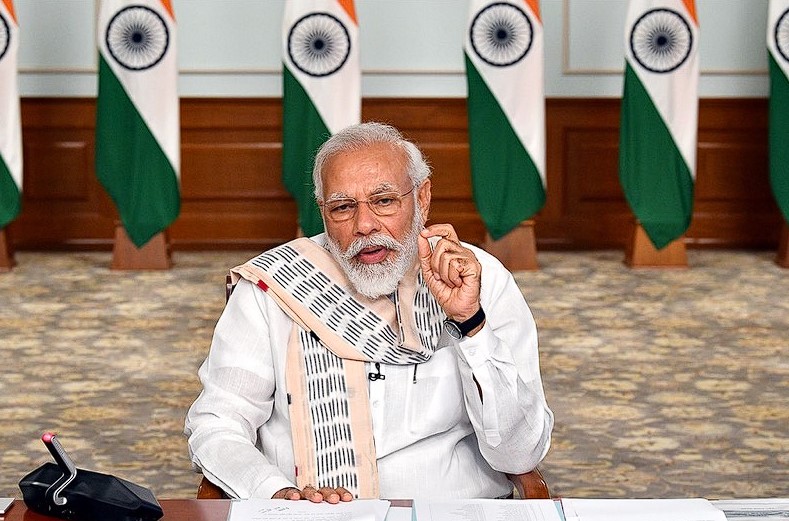Where Is The Good Governance You Promised, Mr Modi?
If the Modi government is serious about keeping up promises of good governance, it’s important to focus more on governance and less on optics.
The political temperature has been rising in India. It will continue to rise until the 2024 general elections. The national capital led by the Modi government and his party, the BJP, and its progenitor, the RSS, are in an election mode. The Opposition has no choice but to follow.
After the landslide electoral defeat in Karnataka, the BJP and the RSS have started introspecting. The RSS’s mouthpiece The Organizer has recognized that a combination of Hindutva and Modi charisma would not work at state elections. In a recent op-ed, Prafulla Ketkar, the editor wrote:
"For the Bharatiya Janata Party (BJP), it is the right time to take stock of the situation. Without strong leadership and effective delivery at the regional level, Prime Minister Modi’s charisma and Hindutva as an ideological glue would not be sufficient. The positive factors, ideology, and leadership are genuine assets for the BJP when the state-level governance is operational.
I should like to coin a new phrase “Hindutva and Moditva” to refer to the failed recipe in Karnataka. It is obvious that the duty of an elected government in a democracy is to deliver good governance without indulging in divisive party politics. Modi did promise good governance in 2014 and 2019."
So, let’s ask some basic questions on two current issues of national importance.
The brave women wrestlers who won Olympic medals have been seeking justice, so far unsuccessfully, from the Modi establishment. Seven women wrestlers claim that they had been sexually molested by the president of the Wrestling Federation of India.
The main accused, Brij Bhushan Sharan Singh, a sixty-six-year-old politician from the BJP, has been holding the office as president for ten years. A six-time Member of Parliament he has been described as a “history sheeter” by The Print, in 2017. “History sheeter” is an Indian coinage to refer to a person with a criminal record.
The wrestlers protest began in January 2023. It is indeed intriguing that Prime Minister Modi has not mentioned it in his popular Mann Ki Baat (Speaking from Heart), a radio programme listened to by millions of people globally.
The Delhi Police registered First Information Report (FIR) against Brij Bhushan only after the Supreme Court ordered it to do so. The Sports Minister Anurag Thakur has assured the wrestlers, during a six-hour conversation, that the Delhi Police would act by 15 June.
Why is a Union Minister speaking on behalf of the Delhi Police, which has a streamlined system for communicating with the citizens? Perhaps, the need for good media optics before Modi’s visit to Washington due on 22 June has motivated the government to settle the matter?
Another instance of bad governance is the Odisha train accident.
On 2 June 2023, occurred one of the worst of rail accidents in history when three trains collided. The grim toll announced officially is 275. The real toll might be higher. We the public still have not been told how the accident occurred.
There is reason to fear that an elaborate project to mislead the public about the real causes might be afoot. On 4 June, Minister of Railways Ashwini Vaishnaw said, “The root cause of the accident has been identified. And the people who have done it have also been identified.” Intriguingly, the Commissioner for Rail Safety (CRS) constituted a team to investigate the matter only by 5 June. Even if the Minister knew the root cause should he have announced it even before the CRS had started its work?
Without even waiting for a preliminary report from CRS, the Railway Board recommended, and the Government of India ordered the CBI (Central Bureau of Investigation) to investigate the matter. It is the first time in India that the CBI is investigating a rail accident. If the findings of the CBI and of the CRS are different which one will the Government accept and act upon?
There is a general impression in the capital that the Railways, obsessed with the slow-moving Bullet Train project, and the much hyped about Vande Bharat Trains running at a higher speed, have not paid enough attention to safety.
In this context, an under-reported CAG report published by The Telegraph on 10 June 2023 is worth reading. Briefly, in 2017 Finance Minister Arun Jaitley announced the establishment of Rashtriya Rail Sanraksha Kosh (Railway Safety Fund) with a corpus of Rs. I lakh crore in 5 years. The Government of India was to provide Rs. 80,000 crores with the rest coming from the Railways. However, in 4 years, the total budget allotted was only Rs. 20,000 crores, instead of Rs. 80,000 crores.
The abolition of the Railway budget was a wrong decision taken in 2017. Equally wrong is not having a minister exclusively for the Railways.
The Bullet Train project was not the most needed of the Railways. In February 2016, writing in The Frontline, I had pointed out that safety was most important aspect. I wrote:
"In terms of safety, India has the highest rate of accidents causing death and injury. China registered 132 deaths owing to rail accidents from 2000 to 2010. In contrast, as per official statistics given by the Indian Railways, in 2001-02 alone India’s toll was 326. Our record is appalling."
Undue attention to favorable optics for the head of government does invariably detract from the government’s ability to deliver. It’s improbable to expect a sudden change in approach. However, good governance, which Modi promised to deliver in every election campaign, is found wanting.
The people of India deserve good governance. If Modi is serious about keeping up promises of good governance, it’s important to focus more on governance and less on optics.
This article was published on madrascourier.com

